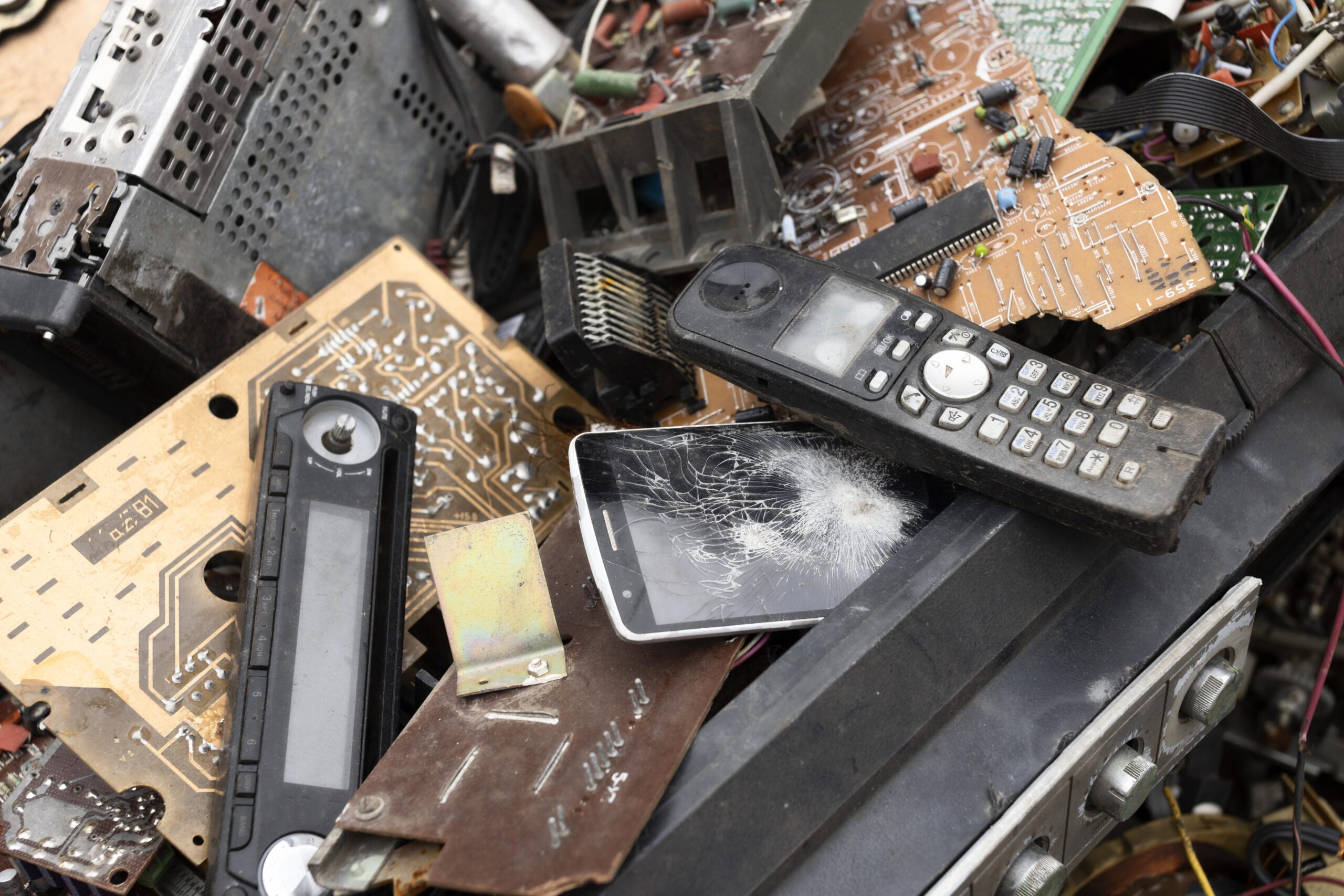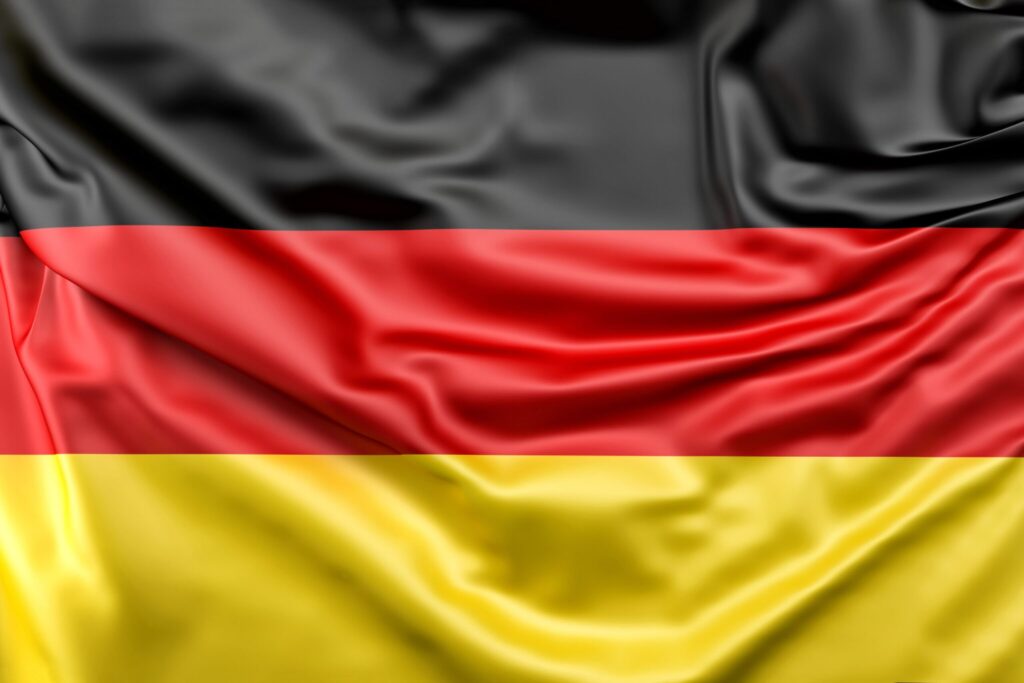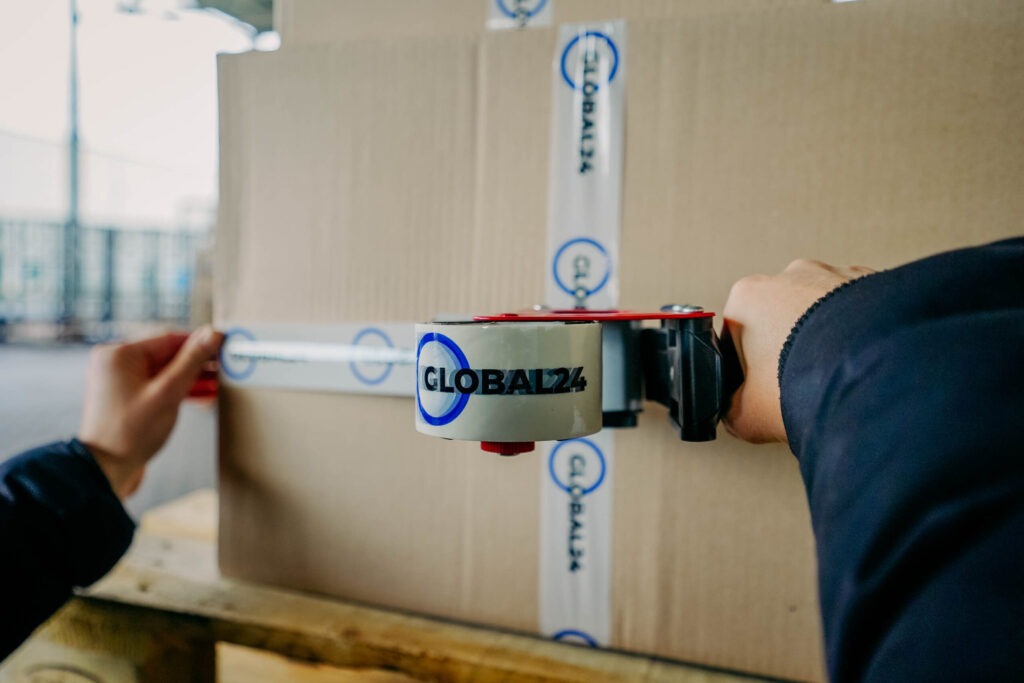ElectroG, the WEEE Directive in Germany
Ecology, disposal, waste accounting are increasingly common topics also in the world of e-commerce. In this article, we will introduce you to the ElectroG Act, which you need to bear in mind if you sell appliances requiring electricity to Germany.

Publication date:
Table of contents:
- What is the WEEE (ElectroG) Directive?
- Who is affected by the WEEE (ElectroG) Directive?
- What types of equipment are affected by the WEEE (ElectroG) Directive?
- Registration with the EAR system
- Parcels to Germany from Global24
- ElectroG, the WEEE Directive in Germany
- Update: Marketplaces verification of your WEEE from 1 July 2023
What is the WEEE directive (ElectroG)
WEEE stands for Waste of Electrical and Electronic Equipment. The directive was introduced by the European Union on 01.2003. Its mission is to minimise the negative impact of electrical waste on the environment. It imposes obligations on states, businesses and citizens to dispose of waste appropriately. Its provisions apply, inter alia, to any entity that places electrical and electronic equipment on the market in a member state (not only manufacturers, but also importers), and thus generates waste. Germany regulates the WEEE directive with the ElectroG Electronic and Electrical Equipment Act . This provides information on what and who needs to be registered across our western border.
Who is affected by the WEEE directive (ElectroG)?
The directive applies to manufacturers of appliances that need electricity to operate. Interestingly, a seller, who is not a manufacturer, but is the first entity to introduce and sell the appliance in question on the German market, is also seen as a manufacturer.
See more on packaging registration in Germany: LUCID in 2024: Understanding Registration and Costs
So, for example, if you purchase equipment from a manufacturer in our country, but want to sell this good in Germany, and the manufacturer has not previously registered the equipment, you will be considered precisely as a manufacturer according to the law. What further consequences does this have? You will be obliged to register such equipment, as you will be the first to put this product into circulation on the German market.
Exact definition of manufacturer below:
- manufacturer, i.e. a person who manufactures electrical and electronic equipment (electrical equipment) himself or who has it designed or manufactured under his name or brand name and offers it under his name or brand name in Germany (§ 3 para. 9 a) aa) and bb) ElektroG),
- anyone who offers electrical equipment from other manufacturers under his own name or brand in Germany or resells it commercially,
- the supplier or seller is not regarded as a manufacturer if the manufacturer’s name or brand appears on the electrical equipment in accordance with § 3 point 9 a) ElektroG (cf. § 3 point 9 b) ElektroG),
- anyone who, in the course of a commercial activity, offers for the first time on the German market electrical appliances which do not originate in Germany – but from a third country or another EU member state (§ 3 point 9 c) ElektroG). This means that an importer can also be a manufacturer within the meaning of the ElektroG,
- anyone who offers electronic devices directly to end users by means of distance communication and is not established in Germany (§ 3 point 9 d) ElektroG).

What types of equipment does the WEEE directive (ElectroG) apply to?
We will use the law again (Section 2(1) of the ElectroG), which states that virtually all equipment that needs electricity to function is obliged to comply with WEEE. To be more precise, these are “all devices that are constructed to operate using AC power up to 1000V or DC power up to 1500V“. And “are dependent on electricity or electromagnetic fields” or “are designed to transmit or measure electric currents, or electromagnetic fields”. Hence, even the sale of a simple battery-powered wristwatch means that such equipment must be registered.
You do not have to be subject to registration if it is:
1) Equipment used to safeguard the essential security interests of the Federal Republic of Germany, including: arms, ammunition and military material intended exclusively for military purposes.
2) a) Equipment built into other equipment that is exempt from registration.
- (b) Conventional incandescent and halogen bulbs (not applicable to xenon, etc.).
- (c) Devices that are only components of other devices and do not function independently.
3) Equipment for use specifically in space.
4) Stationary industrial large tools (excavators).
5) Means of transport for transporting persons and goods; except electric single-track vehicles.
6) Equipment specifically designed for research and development purposes and supplied exclusively on an inter-company basis.
7) Medical devices and in vitro diagnostic devices.
If you prefer knowledge in video form, we recommend short tutorials from the EAR registration panel website.
EAR registration

Now that you know whether this directive also applies to you, we will now outline what the registration obligation is. To begin with, you should know that equipment of the same brand and with close technical characteristics only needs one registration under the EAR principle. That is, for example, if you sell watches of the same brand powered by a battery but having different models and colours, 1 registration is required. In contrast, if these watches will already be sold under other brands, even with similar specifications, a separate registration will be required for each of them. The costs of registration with the EAR result from the ElectroG Act. You must remember to present the bankruptcy guarantee certificate for registration.
See some examples:
- 3 TVs sold under one brand = 1 registration in the EAR for a TV of that brand,
- 4 TVs however sold under 4 different brands = 4 separate registrations, for each TV under each of the 4 brands,
- 5 TVs under 5 brands, even if they have similar characteristics = 5 separate registrations
- 6 televisions that have different colours = 1 registration
The registration itself can be done here. What costs are involved? They are all described in the regulation, but to give you an idea of the amount: an example of a registration issue for 1 equipment is €12.4.
Read more about packaging registration by Amazon: Waste accounting / packaging registration by Amazon
What happens if you do not register your equipment? Failure to register is associated with potential fines, which can be as high as €100,000 if unregistered equipment is sold! Can you admit that these are considerable sums of money? It is important to remember that the law in Germany, as well as the market itself, is the most restrictive in the whole of Europe, and your competitors will only be waiting for such an oversight on your part.
You may be registered for WEEE in another country, but this does not exempt you from the obligation to register in Germany. The country in question decides on its own registration rules and these are not tolerated in other countries. Hence, Germany does not tolerate registrations from other EU countries, like Poland or Austria.
ElectroG, the WEEE directive in Germany
You already know who is subject to WEEE registration and which appliances it applies to. Remember that the German market is very demanding, so take the LUCID waste registration and the EAR electronic equipment registration seriously. Especially since marketplaces such as Amazon and eBay already require the above registration numbers.
Update:
From 1 July 2023 marketplaces will check your WEEE registration (ElectroG law). If your electrical equipment is not properly registered, unfortunately they may block your sale.
FAQ
- “I have registered two brands for electrical waste. I have received the numbers and the WEEE number is the same for both brands. Is this the one I should enter on Amazon and shouldn’t it be the case that for both brands the WEE numbers should be different and not the same?”
The numbers given are correct. It will be important to enter them in the correct registration categories or Amazon will not accept them.
Parcels to Germany from Global24
We have been successfully processing parcels to Germany for several years. Our speciality is both returns and shipping to Germany. We will provide you with a foreign address, transport to the final customer by the best German courier and do it in just 24 hours, as we dispatch parcels daily. Importantly – you will also need a German return address, for example with Amazon’s current requirements. Contact us today to streamline your global logistics operations!
Do you want to be up to date?
Subscribe to the newsletter
Subscribe to the CROSS-BORDER LETTER newsletter! Learn about news, tricks and secrets in foreign logistics. Check how to sell abroad and achieve more benefits.







